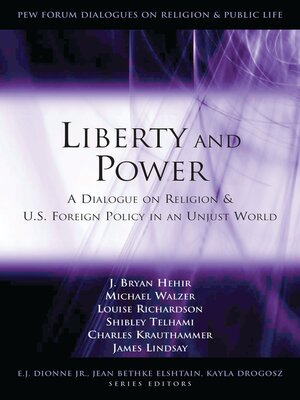Liberty and Power
ebook ∣ A Dialogue on Religion and U.S. Foreign Policy in an Unjust World · Pew Forum Dialogue Series on Religion and Public Life
By J. Bryan Hehir

Sign up to save your library
With an OverDrive account, you can save your favorite libraries for at-a-glance information about availability. Find out more about OverDrive accounts.
Find this title in Libby, the library reading app by OverDrive.



Search for a digital library with this title
Title found at these libraries:
| Library Name | Distance |
|---|---|
| Loading... |
What role should religion play in shaping and implementing U.S. foreign policy?
The dominant attitude over the last half century on the subject of religion and international relations was expressed well by Dean Acheson, Harry Truman's secretary of state: ""Moral Talk was fine preaching for the Final Day of Judgment, but it was not a view I would entertain as a public servant."" Was Acheson right? How a nation ""commits itself to freedom"" has long been at the heart of debates about foreign aid, economic sanctions, and military intervention. Moral and faith traditions have much to say about what is required to achieve this end. And after September 11, no one can doubt the importance of religious beliefs in influencing relations among peoples and nations. The contributors to this volume come at the issue from very different perspectives and offer exceptional and unexpected insights on a question now at the forefront of American foreign policy.
The dominant attitude over the last half century on the subject of religion and international relations was expressed well by Dean Acheson, Harry Truman's secretary of state: ""Moral Talk was fine preaching for the Final Day of Judgment, but it was not a view I would entertain as a public servant."" Was Acheson right? How a nation ""commits itself to freedom"" has long been at the heart of debates about foreign aid, economic sanctions, and military intervention. Moral and faith traditions have much to say about what is required to achieve this end. And after September 11, no one can doubt the importance of religious beliefs in influencing relations among peoples and nations. The contributors to this volume come at the issue from very different perspectives and offer exceptional and unexpected insights on a question now at the forefront of American foreign policy.







